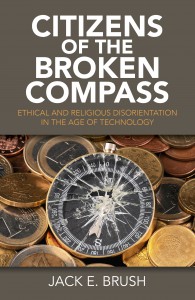
by Jack E. Brush
Once again, we are observing the failure of “rights talk” to resolve the most pressing social issues of our day. In an interview last Saturday on the Christian Broadcasting Network, Jeb Bush defended the view that Christian business owners have the right to refuse service at same-sex marriages. Quoting “Huffington Post”: “The former Florida governor justified his position by claiming that not providing a service does not count as discrimination if business owners feel that it violates their religious rights.” Aside from the point that the “feelings” of business owners are from a legal standpoint irrelevant, the framing of the discussion in terms of “rights” is ill-conceived from the outset. Mr. Bush bases his case on the concept of “rights” and extends this concept to include religious views; business owners have a “right” to refuse service to individuals with whom they disagree on certain moral issues. Of course, the obvious question arises concerning the limits and boundaries of such a concept. If I am a pharmacist who believes that it is a sin to “take the Lord’s name in vain” and a customer comes into my pharmacy swearing about his illness, do I have the right to refuse service to him? Perhaps, Mr. Bush would think that I do. Be that as it may, I think that the point is clear. If we take his position seriously, it will be very difficult to define the limits of this “right to refuse”.
On the other hand, the fact that Mr. Bush framed his case in terms of rights seems very natural in view of the position taken by the gay/lesbian movement. The argument for same-sex marriage is also based on “rights”–in this case, it is becoming a matter of constitutional rights. Apart from one’s position on same-sex marriage, it is difficult to avoid the impression that the entire issue has been very poorly framed and very narrowly discussed. To focus on individual rights, whether we are discussing the “right to refuse” or the “right to marry”, overlooks completely the societal dimension of all social issues. Our society is not composed of self-sufficient, self-determined individual entities, each possessing certain rights, but rather our society is a complex network of interlocking relationships. It is, therefore, an illusion to think that same-sex marriage will not affect all of us, and it is also an illusion to assume that the refusal of service to these couples will have no long-term cultural impact.
In short, I think that we are focusing too narrowly on one aspect of the social issue to the exclusion of an interest in the common good. In the end, we pit right against right, and we are left with unanswerable questions. Whose right has priority? And who’s right about this right? The questions are unanswerable because the framing of the issue is wrong. In the whole debate, the concept of responsibility is hardly mentioned, and the notion of civic duty is conspicuously missing.
Prof. Dr. Jack E. Brush holds degrees in Engineering (B.E., Vanderbilt University), Divinity (M.Div., Vanderbilt University), Philosophy (M.A., Vanderbilt University) and Theology (PhD, University of Zurich, Switzerland). He was a Postdoctoral Scholar at Harvard University, and until his retirement in 2010, he was Professor of Systematic Theology at the University of Zurich, Switzerland. His publications include a three-volume series in German on the relationship between science and religion.
 Citizens of the Broken Compass is a collection of articles dealing with a range of topics from the theory of evolution to human rights.
Citizens of the Broken Compass is a collection of articles dealing with a range of topics from the theory of evolution to human rights.
Intelligent yet accessible, it aims at promoting dialogue about the growing discrepancy between our technological achievements and our ethical sensitivities; proposing the ethical disorientation in
society cannot be separated from the religious confusions stemming from a radical, fundamentalist view of Christianity.
BUY ONLINE
Categories:
0 comments on this article







